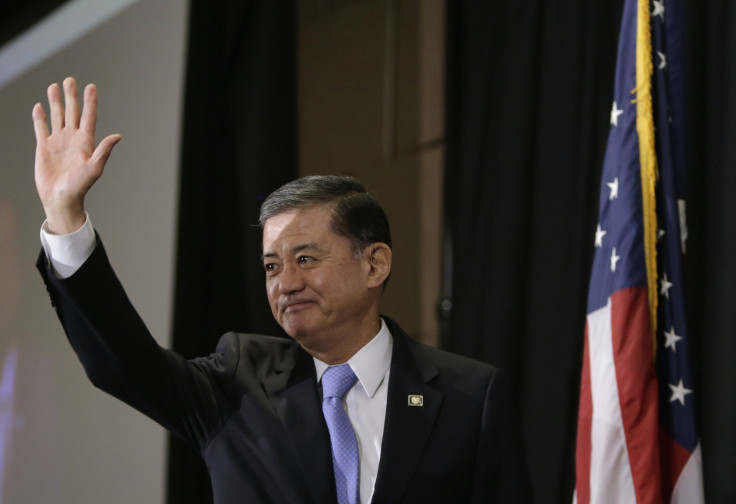VA Secretary Eric Shinseki Resigns To Make Room For 'A Change In Culture' Amid Allegations Of Deadly Hospital Delays

It appears that at least someone at the VA has now accepted that the widespread systemic problems found in the organization need to be addressed.
Secretary at the Department of Veterans Affairs (VA) Eric Shinseki has resigned after growing concern over the shortcomings of the organization, which has been lacking in providing veterans timely health care. The inefficiency of the VA has led to unnecessary deaths of former U.S. military men, who had to wait too long for a doctor’s appointment.
“That was [Eric’s] judgment on behalf of his fellow veterans, and I agree,” President Barack Obama said Friday upon announcing Shinseki’s resignation. “We don’t have time for distractions. We need to fix the problem.”
CNN investigative reports published last year pointed out that military veterans were “dying needlessly” due to severely long waits at veteran hospitals, and described the Department of Veterans Affairs as indifferent in solving these issues. The VA “has done almost nothing to effectively prevent veterans dying from delays in care, according to documents obtained by CNN and interviews with numerous experts,” a CNN report from November 2013 states. There were allegations of 40 veteran deaths due to delayed care at the Phoenix, Ariz., facility, but the VA has acknowledged 23 delayed care deaths nationwide.
Ever since these unsavory reports surfaced and family members of veterans began sharing their stories, both Democrats and Republicans began calling for Shinseki to resign. “The denial of care to our veterans is a national disgrace, and it’s fitting that the person who oversees the Department of Veterans Affairs has accepted responsibility for this growing scandal and resigned,” Senate Republican leader Mitch McConnell said in a statement.
During a meeting with Obama just before his resignation, Shinseki provided the president with an internal audit of what was going on in the VA — revealing “questionable scheduling practices,” a “systemic lack of integrity,” and overall “totally unacceptable” practices, the president said. According to CNN, some reports have shown that at least one VA hospital linked employee bonuses to wait times for patients. After some time denying that the allegations were of “isolated” incidents, Shinseki finally admitted that these problems were indeed rampant and quite entrenched in the VA system. In his announcement, Obama pushed for the VA to make “a change in culture” to fix some of these problems and keep the bad news from being swept under the rug.
Some relatives of veterans who died have spoken out against the VA’s systemic failures, saying it was extremely difficult for a veteran to make an appointment to see a doctor, even when serious health problems arose. “He’d have the card in hand, go to check in, and they’d tell him, ‘Mr. Valdez, you don’t have an appointment in the computer. We have no idea what you’re talking about,’” Priscella Valdez, the daughter of a veteran who died from lack of care, told CNN in a May 2014 report.
Shinseki, 71, is himself a veteran who was awarded a Bronze Star three times during his time in Vietnam. At the conference Friday in which he announced his resignation, Shinseki also spoke positively of his success in decreasing the number of homeless veterans by 24 percent. But his focus was on taking responsibility for the corruption and inefficiency found in VA proceedings. "I can't explain the lack of integrity among some of the leaders of our health care facilities,” Shinseki said. “This is something I rarely encountered during 38 years in uniform. And so I will not defend it because it is indefensible.”
Published by Medicaldaily.com



























